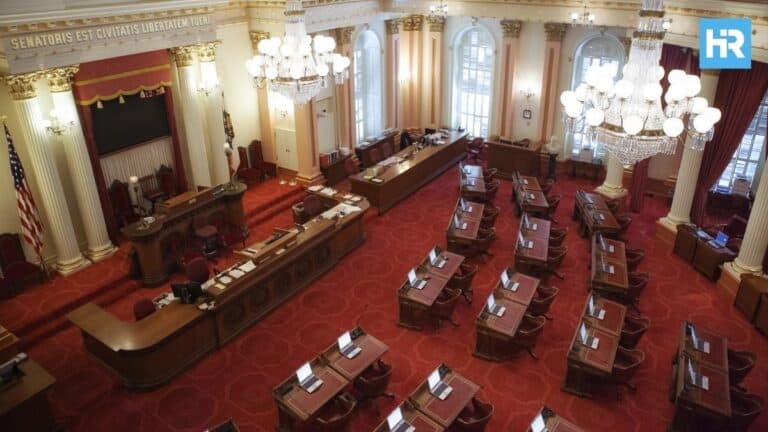
The Hoboken City Council has approved a settlement with developers to allow new high-rise buildings and over 1,700 apartments on the Western Edge.
Despite the decision, Union City strongly opposed the plan and vowed to keep fighting it in court.
This controversial project has sparked heated debates between local officials, including Mayor Bhalla and Councilwoman Fisher.
- Hoboken approved a settlement that allowed major construction, including 1,001 new apartments and taller buildings, even though Union City is fighting over concerns about blocked views and building heights.
- Union City plans to continue fighting the development in court, saying it breaks planning rules and hasn’t been properly reviewed. Local residents are worried about the impact.
- Strong disagreements between Mayor Bhalla and Councilwoman Fisher escalated, with accusations of political misconduct, bad decision-making, and even claims of racism being exchanged.
Hoboken Council Moves Forward With Western Edge Settlement
The Hoboken City Council recently voted to approve a settlement with Pegasus Partners, allowing them to move forward with the Western Edge development project.
This settlement, approved by the City Council, clears the way for new high-rise buildings and hundreds of apartments, but the decision has not been without controversy.
Union City officials, led by Vincent Ferrera, a lawyer representing the city, are furious about the approval.
They argue that the development will block views of the Palisades and that the plan hasn’t been properly reviewed.
Even though Hoboken has approved the deal, Ferrera clarified that the fight isn’t over.
Union City plans to continue pursuing legal action in Hoboken over the development.
And Union City isn’t alone in its concerns. Arthur Neiss, another lawyer involved in the case, pointed out that parts of the plan, such as the impact on Monroe Street, haven’t been fully explained or shared with the public.
He suggested the deal might even be illegal, saying it feels like the developers are “buying approvals.”
Changes to the Development Plan
Despite the ongoing disagreements, the council approved several changes to the development plan.
Jessica Almeida, a lawyer for Hoboken, explained some of the new details:
- Two new buildings will build 1,001 apartments, of which 10% will be affordable housing, meaning they’ll be set aside for lower-income residents.
- The project’s retail space is getting smaller, going from 78,000 square feet to 50,000 square feet. There will also be no commercial office space, which was in the original plan.
- The project includes a $3 million community benefit payment, which the developers will pay the city for the project’s impact. This amount is less than what was previously proposed.
- The height of the buildings has gone up. They’ll now be 18 stories tall, much higher than the original plan.
Not to mention, the deal includes a 30-year payment in lieu of taxes (PILOT) agreement, which lets the developers pay a set amount to the city instead of regular property taxes.
Almeida said this could be more beneficial for the city than traditional taxes.
Ongoing Controversy and Heated Exchanges Between Officials
The settlement has heated political tensions between Hoboken’s leaders, especially Mayor Ravi Bhalla and Councilwoman Tiffanie Fisher.
Fisher has been very vocal in opposing the settlement, accusing Bhalla of making decisions to benefit himself and not the city.
She claimed that Bhalla had broken contracts, which worsened the situation for Hoboken taxpayers.
As the debate intensified, tensions hit a boiling point during the council meeting, with Bhalla sending out an email before the meeting accusing Fisher of racism.
Bhalla claimed that Fisher once said he was “unelectable” because of his turban and beard, but Fisher strongly denied this.
She said the mayor was trying to distract from the real issues with the settlement and called his accusations “political grandstanding.”
Fisher argued that the settlement gave too much away to the developers, especially with the increased height and extra apartments.
She pointed out that Hoboken’s schools and infrastructure aren’t prepared for such a big influx of new residents and called for more time to review the deal.
The Settlement’s Controversial Details: More Housing and Fewer Benefits
The final agreement will allow for even more apartments and taller buildings than the original plan, with 300 extra units allowed on both properties. In total, there could be up to 600 extra apartments in the area.
Moreover, the height of the buildings is also being increased from 16 to 18 stories, which many Union City residents are upset about because it could block their views.
In addition, the community benefit payment was slashed from $9 million to $4 million, leaving some feeling that Hoboken got the short end of the stick.
The developers could also turn a proposed hotel into apartments at 1300 Jefferson Street.
Councilwoman Fisher strongly opposed these changes, accusing Mayor Bhalla of putting Hoboken at risk for millions of dollars in damages if the remaining legal issues aren’t resolved.
Settlement Moves Forward, but Legal Battles Remain
After a long debate, the Hoboken City Council passed the settlement with a 5-1-1 vote.
Councilmembers Cohen, Doyle, Jabbour, Presinzano, and Quintero voted in favor, while Councilman Russo voted against it, and Fisher abstained.
Council President Jen Giattino and 4th Ward Councilman Ruben Ramos recused themselves from the vote due to their personal ties to the developers.
Despite the approval, it’s clear the fight isn’t over. Union City’s lawsuit will continue, and Hoboken’s residents will watch closely. As you can imagine, they are keen to see how the development unfolds and how the city manages the influx of residents and changes to the area.
For now, Hoboken’s Western Edge is set for major changes, but whether those changes will be positive remains to be seen.









